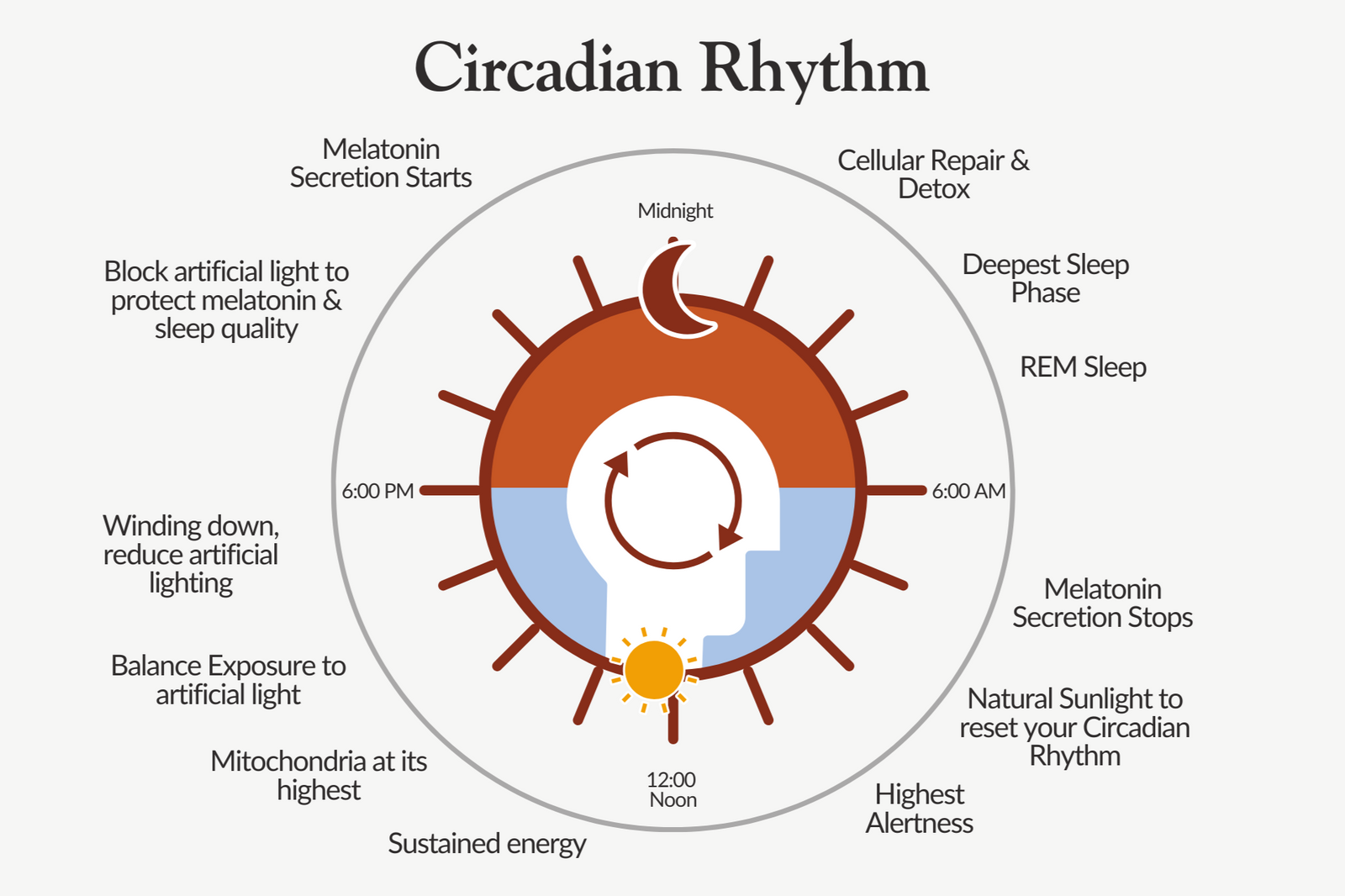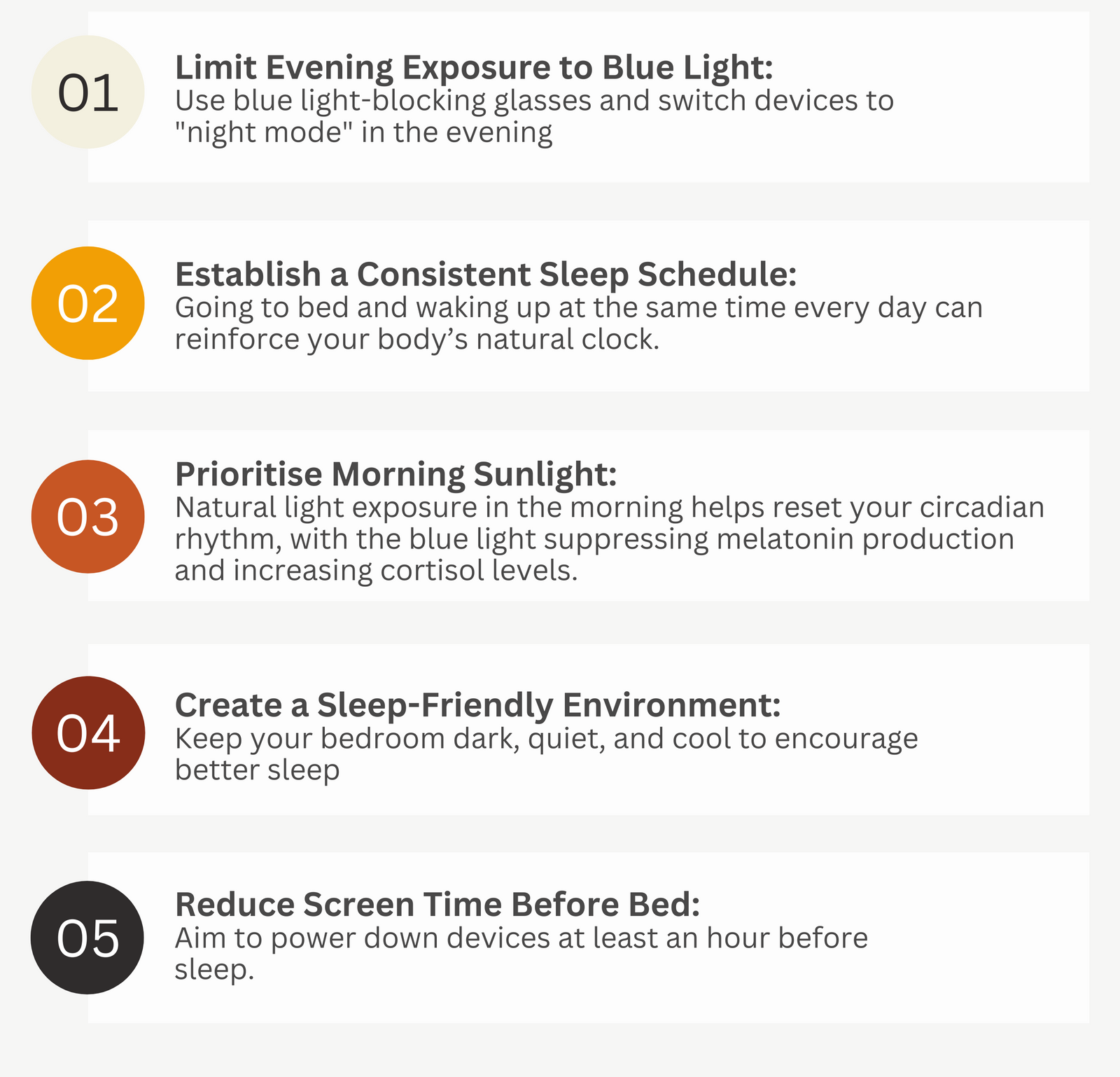The Circadian Rhythm and Mitochondria Optimisation
The Circadian Rhythm: Your Body’s Natural Clock and Its Role in Sleep and Health and Mitochondria Optimisation
Have you ever wondered why you feel energised in the morning and sleepy at night? That’s your circadian rhythm at work. Often referred to as the body’s internal clock, the circadian rhythm is a 24-hour cycle that regulates a variety of biological processes, including sleep, hormone production, and metabolism. Understanding and supporting this natural rhythm can significantly improve your overall health and well-being.

What is the Circadian Rhythm?
The circadian rhythm is controlled by the suprachiasmatic nucleus (SCN), a small group of cells located in the hypothalamus of the brain. This internal clock responds to environmental cues such as light and darkness to help synchronize your body’s functions with the day-night cycle.
Here’s the issue: In today’s world, we’re exposed to artificial blue light from screens (phones, TVs, computers) long after the sun goes down. Blue light tricks your brain into thinking it’s daytime, suppressing melatonin production (your body’s sleep hormone) and disrupting your rhythm. The result? Trouble falling asleep, poor sleep quality, and groggy mornings.
Why is the Circadian Rhythm Important for Health?
At the heart of your energy and well-being are your mitochondria—tiny but powerful structures inside your cells that produce the energy (ATP) your body needs to function. They fuel everything from brain function to muscle movement, immune defence, and cellular repair. When mitochondria are supported by a well-regulated circadian rhythm, they work more efficiently, keeping you energised, resilient, and thriving
By aligning your body’s natural clock with daily light-dark cycles, your circadian rhythm ensures that your mitochondria produce energy when you need it most and focus on repair and regeneration while you sleep. This synchronisation leads to:
- Deep, Restorative Sleep: A healthy circadian rhythm allows mitochondria to repair and recharge at night, so you wake up refreshed, mentally sharp, and full of energy.
- Elevated Mood & Emotional Balance: Mitochondria play a role in neurotransmitter production, helping maintain steady energy levels, emotional stability, and an overall sense of well-being.
- Optimised Metabolism & Sustained Energy: When your body is in sync with natural light cycles, mitochondria convert food into energy more efficiently, promoting a strong metabolism and consistent vitality.
- Stronger Immunity & Cellular Resilience: A well-functioning circadian rhythm gives mitochondria time to strengthen immune cells, helping your body stay strong and fight off illnesses
- Longevity & Vibrant Health: Healthy mitochondria clear out damaged cells, support detoxification, and promote long-term vitality, helping you feel and perform at your best.
By protecting you circadian rhythm, you're also supporting your mitochondria, ensuring they function at their peak to power your body with sustainable energy, resilience and longevity.
To Maintain a Healthy Circadian Rhythm, Consider Adopting the Following Habits:


